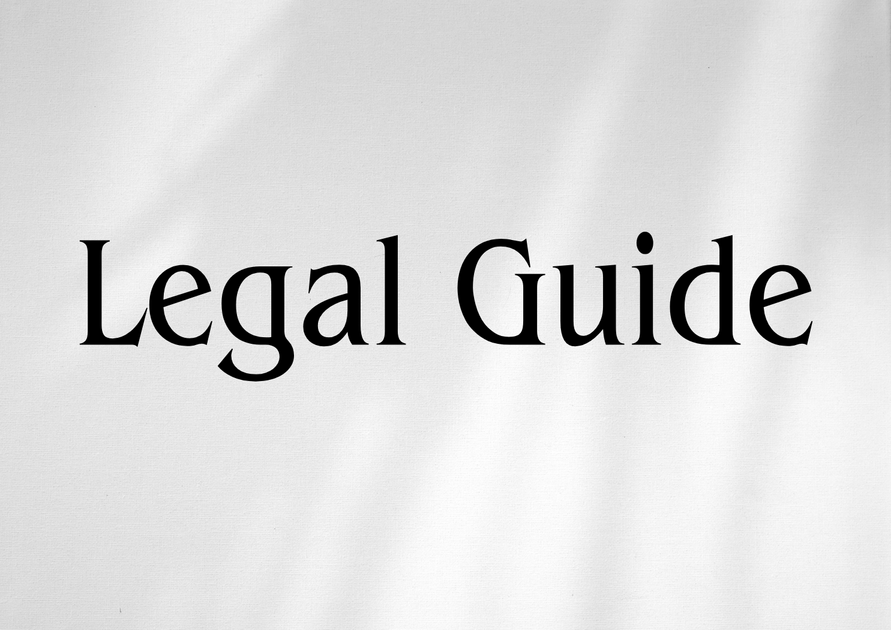Introduction: The Legal Landscape for New Airlines in the UAE
The United Arab Emirates stands as a global aviation gateway, connecting continents and facilitating millions of journeys annually. As the nation’s commitment to economic diversification deepens, establishing a new airline in the UAE represents both an extraordinary opportunity and a significant regulatory undertaking. Recent updates in UAE law—especially those relevant to foreign direct investment, corporate structuring, and aviation licensing—have reshaped the foundational legal process for launching new airlines. Understanding the multi-layered legal environment is not only essential for compliance, but central to strategic decision-making and risk mitigation for investors, executives, and legal advisors within the aviation sector.
This article offers a rigorous, consultancy-level analysis of the current legal process for establishing a new airline in the UAE. By tracing official sources, regulatory milestones, and practical compliance pathways, readers will gain a comprehensive understanding of both mandatory statutory requirements and applied best practices for prospective airline ventures. This guidance is particularly salient in the wake of 2025 regulatory updates and the growing prominence of the UAE as an innovation hub in aviation. Whether you are a c-suite executive, in-house legal counsel, or regulatory strategist, this analysis equips you to navigate critical legal checkpoints and capitalize on evolving sector opportunities.
Table of Contents
- UAE Regulatory Framework for Aviation
- Legal Entity and Ownership Structuring
- Air Operating Certificate (AOC) Process
- Foreign Investment Regulations and FDI in Airlines
- Safety, Security, and Compliance Obligations
- Employment, HR and Immigration Compliance
- Taxation and Fiscal Considerations
- Key Risks and Compliance Strategies
- Case Studies: Launch Scenarios and Pitfalls
- Conclusion and Forward-Looking Best Practices
UAE Regulatory Framework for Aviation
Primary Regulators: GCAA and Local Authorities
The UAE’s aviation sector is governed by a robust regulatory ecosystem, with the General Civil Aviation Authority (GCAA) serving as the federal-level regulator. Its remit includes safety oversight, licensing, airworthiness, and coordination with international bodies like ICAO. Emirate-level authorities, such as the Dubai Civil Aviation Authority (DCAA) and Abu Dhabi Department of Transport, exercise supplementary jurisdiction, particularly over airport operations and localized regulatory approvals.
Foundational Legislation
Key legislative instruments include:
- Federal Law No. 20 of 1991 Concerning Civil Aviation (as amended by subsequent decrees) – establishes broad regulatory mandates for air carriers and operators.
- Federal Decree-Law No. 8 of 2019 on Foreign Direct Investment (recently updated, 2022), which governs foreign equity thresholds and procedures for vital sectors, including aviation.
- GCAA Air Operator Certification Regulation (CAR Part IX) – stipulates requirements for qualification and maintenance of an Air Operator Certificate.
These frameworks collectively ensure that prospective airlines must comply with rigorous technical, corporate, and safety standards aligned with international agreements and the UAE’s strategic goals.
Recent Updates: Federal Decree Highlights
| Regulatory Update | Key Change | Practical Impact |
|---|---|---|
| Federal Decree-Law No. 26 of 2020 | Streamlined UAE Commercial Companies Law, allowing higher foreign ownership in specific sectors | Easier legal structuring, potentially increased FDI in aviation |
| Ministerial Decision 16/2022 | New FDI requirements for strategic sectors, including airlines | More stringent ultimate beneficial ownership (UBO) disclosure |
Legal Entity and Ownership Structuring
Preliminary Corporate Structuring
Before entering the aviation certification process, sponsors must establish a legal entity compatible with UAE law. The typical vehicles include a Public Joint Stock Company (PJSC) or a Private Joint Stock Company, although, under updated regulations, Limited Liability Companies (LLCs) are also possible for certain aviation-related activities, provided required capital and shareholding structure are satisfied.
- Commercial Companies Law (Federal Law No. 32 of 2021): Defines permissible company types for airlines, capital requirements, and nationality restrictions on directors and shareholders.
- Foreign ownership cap: Historically, a 51% UAE national shareholding was mandatory, but as per recent decrees (esp. Federal Law No. 26 of 2020 and the 2019 FDI Law and its amendments) higher foreign equity is now possible, subject to Cabinet approval for specific sectors including civil aviation.
Illustrative Ownership Models: Old vs. New Laws
| Aspect | Pre-2020 Law | Post-2020/2022 Update |
|---|---|---|
| Foreign Ownership | Max 49% | Up to 100% in FDI-permitted scenarios, subject to Cabinet list/approval |
| Shareholder Nationality | Majority UAE nationals | Flexible for international investors, but strategic control may be retained by UAE |
| Legal Structure | PJSC typically required | LLCs / PJSCs, depending on scope |
Practical Consultancy Insight
An early-stage legal audit of founding shareholders’ eligibility and structuring (including compliance with UBO requirements under Ministerial Resolution No. 58 of 2020) will expedite regulatory clearance and limit delays.
Air Operating Certificate (AOC) Process
Overview of Certification Requirements
Securing an Air Operator Certificate (AOC) is the linchpin of airline establishment. Under GCAA Civil Aviation Regulations (CAR Part IX), the AOC process proceeds through four main phases:
- Pre-application engagement and eligibility screening
- Formal application and submission of technical documentation (operations manual, safety management system, fleet/route strategy, maintenance plans)
- Demonstration and inspection (onsite audits, personnel interviews, simulation exercises)
- Certification and continuous oversight
Mandatory Compliance Documents
- Detailed Business Plan
- Fleet Registration and Airworthiness Certificates
- Proof of insurance (aligned with GCAA statutory requirements)
- Key personnel licenses (pilots, operations managers, safety officers—subject to GCAA qualification vetting)
International codeshare or interline operations require further clearances and may invoke bilateral or multilateral aviation agreements, which are administered by the GCAA in coordination with the Ministry of Foreign Affairs.
Practical Considerations
Applicants are advised to pre-align technical teams with GCAA’s Air Safety Directorate, ensuring that operational manuals and safety protocols are tailored to local regulatory nuances—avoiding a ‘copy-paste’ of international materials.
Foreign Investment Regulations and FDI in Airlines
Current Legal Position Post-FDI Law
The Federal Decree-Law No. 19 of 2018 on Foreign Direct Investment and its amending instruments have created new pathways for foreign investment in strategic sectors, including aviation. However, aviation remains categorized as a ‘strategic impact’ activity, where Cabinet approval—and additional sector-specific conditions—are typically required for foreign majority or full ownership.
| FDI Status | Sector Classification | Implications |
|---|---|---|
| Allowed | Support services (ground handling, cargo, training) | Streamlined 100% FDI possible |
| Restricted | Core passenger or cargo airline operation | Cabinet approval, UBO documentation, potential local strategic partner required |
Ministerial Guidance
Per Cabinet Resolution No. 16 of 2020, foreign investors must submit enhanced due diligence documentation, including UBO declarations and economic substance reports, to secure approval for airline-related FDI projects. Reference: UAE Government Business & Investment Portal.
Actionable Insight
Diligent pre-engagement with both federal and Emirate-level investment authorities is essential, as approval processes can differ in documentation rigor, review timelines, and strategic sector definitions.
Safety, Security, and Compliance Obligations
Overarching Framework
Safety and security compliance is governed by a blend of domestic legislation and international conventions (notably the Chicago Convention 1944 and its Annexes, as adopted under UAE law). Core UAE-level legal sources include:
- Federal Law No. 20 of 1991
- UAE Civil Aviation Regulations (CARs), as periodically revised by GCAA resolutions
- Security directives issued by airport authorities and the UAE Ministry of Interior
Main Obligations
- Aircraft maintenance compliance (per CAR-E, Airworthiness Manual)
- Crew and passenger security screening adherence
- Implementation of a robust Safety Management System (SMS), including risk identification, incident reporting, and ongoing compliance audits
Penalty Comparison: Pre-2022 vs. Current Regime
| Breach Type | Pre-2022 Penalty | 2022-Onward Updated Penalty |
|---|---|---|
| Unauthorized Operations | Fines up to AED 250,000, license suspension | Fines up to AED 1,000,000, potential criminal referral |
| Safety Lapse (e.g., unreported defect) | Regulatory warning, possible temporary ban | Immediate operational halt, escalated fine, public record of breach |
Consultancy Perspective
Establishing an internal compliance committee, ideally helmed by a Compliance Officer with GCAA-acceptable credentials, is now a recommended industry best practice. Automation and digital reporting tools are increasingly expected.
Employment, HR, and Immigration Compliance
Key Employment Law Requirements
Operating an airline in the UAE entails strict adherence to sector-specific employment regulations—balancing general provisions of the UAE Labour Law (Federal Decree-Law No. 33 of 2021) with aviation-specific crew and ground operations requirements.
- Mandatory employment contracts, in Arabic and English (per Ministry of Human Resources and Emiratisation guidelines)
- Visa and work permit sponsorship (aligned with Cabinet Resolution No. 1 of 2022 on new employment categories)
- Mandatory Emiratization targets for identified roles as per the latest MoHRE resolutions (see MoHRE Official Site)
Practical HR Compliance Checklist
| Checklist Item | Compliance Tip |
|---|---|
| Employment contracts | Update all contracts per Federal Decree-Law No. 33 of 2021, include Arabic versions |
| Crew medical certification | Ensure all medicals comply with GCAA AMC Doc 006 (Medical Assessment of Flight Personnel) |
| Immigration permits | Pre-clear expatriate hires and crew with UAE GDRFA/MoHRE |
| Payroll and end-of-service | Comply with Wage Protection System (WPS), review bonus and gratuity calculations carefully |
Case Example: Failed Emiratization Compliance
A hypothetical UAE regional airline failed to achieve the MoHRE-mandated minimum Emirati participation for critical administrative roles. As a direct consequence, it faced regulatory fines, operational permit delays, and negative publicity—highlighting the non-negotiable importance of integrated HR legal compliance from inception.
Taxation and Fiscal Considerations
Taxation Regime for Airlines
The UAE’s pro-business fiscal policy remains attractive to aviation investors, with zero personal income tax and limited corporate taxation compared to many jurisdictions. However, crucial recent changes should be noted:
- UAE Federal Corporate Tax Law (Federal Decree-Law No. 47 of 2022) introduces a 9% corporate tax, effective for financial years starting on or after June 1, 2023. Airlines are subject to this regime unless exempt as a government entity or under an applicable bilateral treaty.
- VAT (Value Added Tax) at 5% applies to certain services, though passenger transport typically enjoys an exemption. Cargo, ancillary, and non-core aviation services may trigger VAT obligations.
Engagement with specialized aviation tax advisors is recommended at the structuring stage to optimize tax efficiency and avoid exposure to unanticipated fiscal liabilities.
Key Risks and Compliance Strategies
Principal Compliance Risks
- Non-approval or revocation of Air Operating Certificate due to incomplete documentation or lack of effective safety measures
- Penalties for breach of UAE Labour Law or Emiratization targets
- Inadequate UBO disclosure under FDI rules, leading to regulatory investigation or investment voidance
- Failure to comply with GCAA aircraft security or airworthiness mandates, resulting in grounding or criminal liability
For visualization, a process flow diagram illustrating the sequential regulatory approval stages and principal compliance checkpoints is recommended.
Compliance Strategies
- Conduct an initial legal feasibility study covering both entity and operational structuring
- Develop an integrated compliance management program (covering GCAA, MoHRE, Ministry of Interior, and Ministry of Finance requirements)
- Source legal representation experienced in multi-agency approvals and able to interface effectively with both federal and Emirate-level authorities
- Establish a digital compliance dashboard to ensure ongoing monitoring of certificate renewals, regulatory deadlines, and Emiratization quota tracking
Case Studies: Launch Scenarios and Pitfalls
Case Study A: International Investor Airline Launch
An EU-based investment consortium sought to establish a boutique airline in Abu Dhabi in 2023. By leveraging the updated FDI regulations and proactively securing Cabinet-level approval for their foreign shareholding structure, the group successfully incorporated as an LLC—an option unavailable under pre-2020 law. Success factors included robust UBO documentation, early Emiratization planning, and the appointment of a local Compliance Officer accredited by the GCAA.
Case Study B: Procedural Non-Compliance
A regional entrepreneur attempted to fast-track the certification stage without a complete Safety Management System or finalized employment contracts. This misstep resulted in GCAA rejection, reputational harm, and a 12-month delay in operational commencement—demonstrating the risks of partial legal compliance.
Conclusion and Forward-Looking Best Practices
The UAE’s aviation regulatory environment is highly sophisticated—striking a balance between global best practice, national interests, and economic innovation. The legal process for establishing a new airline in the UAE has evolved significantly, demanding comprehensive due diligence, agile structuring, and proactive compliance management. Recent regulatory reforms—particularly in foreign investment, corporate transparency, safety standards, and employment law—mean that strategy and compliance are now inseparably linked for all new aviation ventures.
As the sector pivots toward further liberalisation and digitization, successful operators will be those who build legal compliance into their core business architecture from the outset. Engaging reputable legal counsel, investing in compliance technology, and prioritizing stakeholder transparency are no longer optional—they are essential for both regulatory approval and sustainable growth in the UAE’s dynamic aviation marketplace.
To stay ahead, clients should commit to regularly monitoring legislative updates via official portals (such as the Federal Legal Gazette), strengthening internal compliance teams, and fostering close working relationships with regulators. These best practices offer the strongest pathway to a successful and legally sound airline launch in the Emirates.



